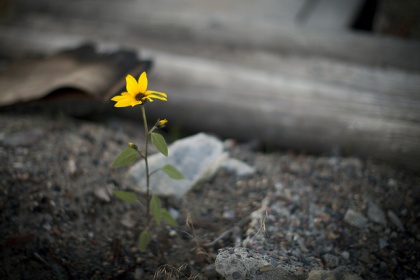Depression and Suffering in Silence

People who have suffered from depression or are currently fighting it know the meaning of “suffering in silence.” Someone asks you why you were absent from work, or maybe they are curious to know why you seem a little more crestfallen, thinner, more apathetic. Sometimes it is easier to say that we have the flu, something easier to accept and understand than what’s really ailing you: your depression.When we say the word “depression,” many do not know how to react. They can’t just say, “It will pass” or “Those pills will fix you right up.” The process is much more complex, deeper, and challenging than that.
Nor is it easy to share your depression with your children or a romantic partner. So, sometimes, we end up silencing our pain and burying it deep inside, away from the view of the world, which can’t understand or accept it. Some say that depression is like a modern version of “leprosy.” Although this may seem a bit exaggerated, given how much we ignore and cover up depression, it might just be a fitting comparison.
Depression, a modern plague
They say that depression is the ultimate modern malaise and that people today struggle to deal with emotions, stress, failure, sadness or loss.
Despite the numerous self-help books that are published each year, none of them seem to have the answer to our problems. Meanwhile, pharmaceutical companies are getting richer and richer because of the increase in use of antidepressants and anxiolytics, which are being prescribed by more primary care providers and psychiatric doctors every day. It’s a vicious cycle in which one thing inevitably leads to another and there does not seem to be a way out.
In effect, depression is simultaneously the most well-known yet least respected disease. Often, it is even silenced. How long do we have to call in sick from work or from life? Can we somehow calculate the time it will take to overcome depression?
Sometimes, it is easiest to effectively silence our suffering and obligate ourselves to lean an outwardly “normal” life. It is easiest to not leave work, to tell our family that we are fine, to tell ourselves that things are getting better, to take our medications, and make light of the problem we are facing.

Depression isn’t a crime; you don’t have to hide it
This does not mean you have to express your anger or grief to everyone you come in contact with. It only means that you should not hide your suffering as if it were a crime or something to be ashamed of. Depression does not heal overnight and there is no infallible strategy that works for everyone.
Each person is unique, and no one’s depression is the same as someone else’s. We have to find our own path to get ourselves out of the hole. Of course, sometimes drug treatments are necessary and effective, especially when coupled with therapy. Also indispensable in the process of recovery is support from your loved ones. That is where we sometimes find the biggest problem.
Suffering in silence is the worst enemy in this case. We try to avoid our depression, escape from it, and bury it as if it did not exist, but this is completely counterproductive. Depression is as real as a bruise we’d get after being hit or falling down; it is a reflection of our pain and hurt and must be healed. But how?
There is no magic answer. There is no treatment that works for everyone. We each must choose our own path to recovery, to learn to see, recognize, and accept ourselves for who we are and what we are like.
Depression is fought, like many other sicknesses, with the heart, the mind, strength…and support from community and loved ones. Not with silence.
This text is provided for informational purposes only and does not replace consultation with a professional. If in doubt, consult your specialist.








